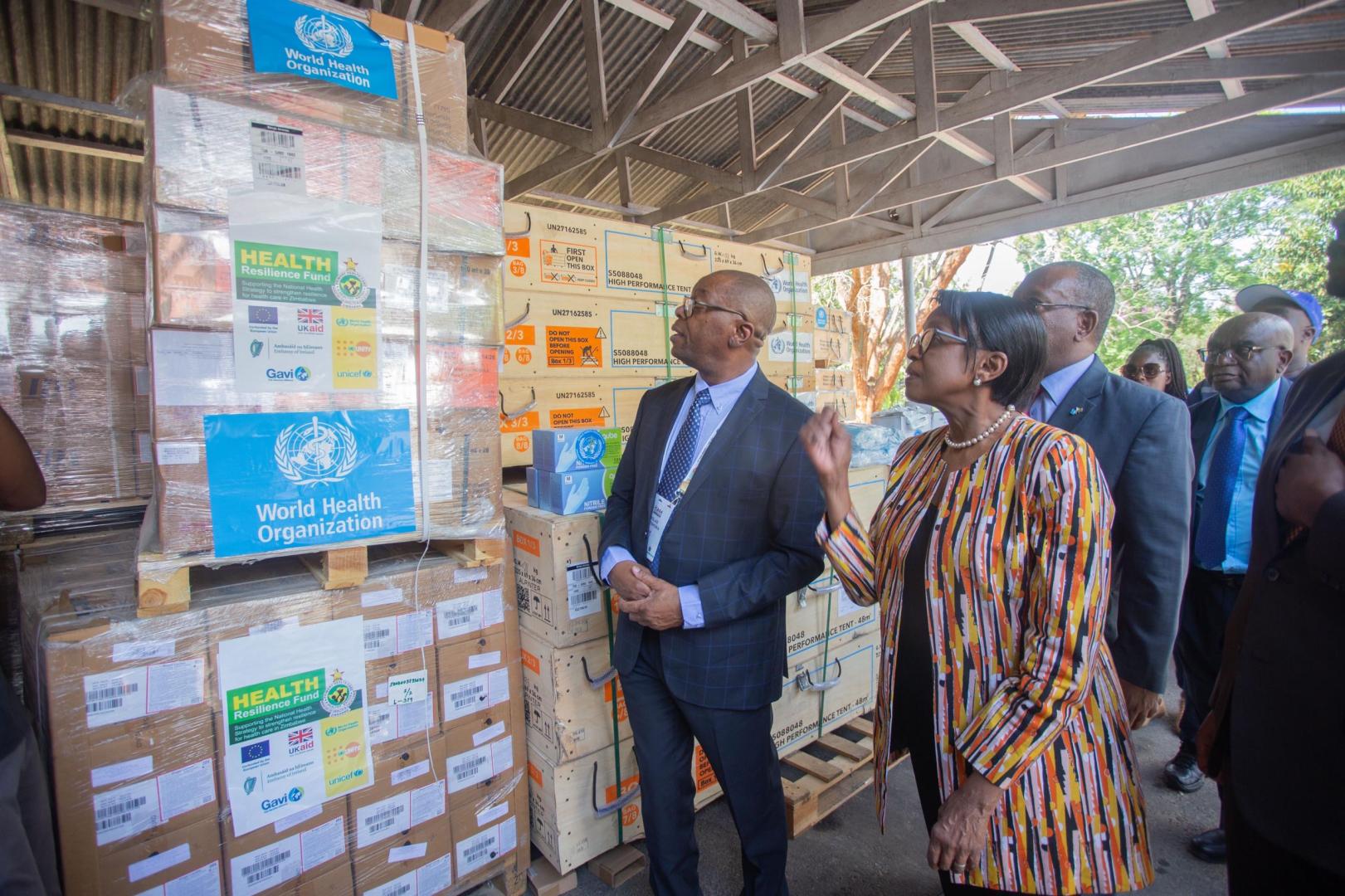Minister Health and Child Care Minister Dr Douglas Mombeshora, WHO Regional Director for Africa Dr Matshidiso Moeti, WHO Representative to Zimbabwe Professor Jean-Marie Dangou
Harare, Zimbabwe – In a pivotal move to fortify cholera response efforts in Zimbabwe, the World Health Organization (WHO) has delivered a substantial consignment of crucial supplies, totaling 22 metric tonnes. This timely contribution underscores the WHO’s steadfast dedication to safeguarding public health and mitigating the impact of the devastating cholera outbreak.
The cholera supplies were funded through the contributions from Health Resilience Fund, a pool of funding from the European Union, Embassy of Ireland, Gavi, The Vaccine Alliance and the UK Aid (Foreign, Commonwealth & Development Office). The consignment comprises cholera kits, medical supplies, and personal protective equipment. These resources are poised to play a pivotal role in augmenting the capacity of health facilities to manage and treat cholera cases effectively. Moreover, they will support the implementation of vital prevention measures, including water purification and sanitation initiatives, crucial for stemming the spread of cholera. The supplies are expected to empower healthcare workers to administer timely and effective treatment, potentially saving numerous lives.
The handover ceremony, attended by dignitaries such as Health and Child Care Minister Dr Douglas Mombeshora, WHO Regional Director for Africa Dr Matshidiso Moeti, WHO Representative to Zimbabwe Professor Jean-Marie Dangou, and other senior government officials and WHO staff, marked a significant moment in the ongoing efforts to combat cholera.
Dr Moeti expressed gratitude for the generosity of donors and emphasized the necessity of addressing the root causes of cholera outbreaks. “We must focus on improving access to clean water and appropriate sanitation and hygiene, intensive awareness-raising, community engagement, and strengthening early warning surveillance to detect cases quickly and respond effectively,” remarked Dr Moeti.
Zimbabwe has been grappling with a cholera outbreak exacerbated by challenges in water supply, sanitation, and hygiene, compounded by climate change-induced prolonged dry seasons. Limited global supply of oral cholera vaccines has further complicated response efforts.
Accepting the donation, Dr Mombeshora highlighted the impact on critical response gaps. “This consignment will help us cover those critical gaps,” said Dr Mombeshora, acknowledging the decrease in cases but emphasizing the need for sustained efforts.
Dr Aspect Maunganidze, the Permanent Secretary, appreciated the WHO’s consultative approach in engaging the Ministry before procurement, ensuring a targeted response to the population’s actual needs.
Beyond immediate relief, WHO’s commitment extends to long-term capacity building. The organization actively engages in training healthcare workers, strengthening surveillance systems, and promoting public awareness campaigns. This consignment is not only a practical response to the current crisis but a testament to WHO’s unwavering commitment to global public health.

COMMENTS